Event details
- Top
- event information
- Event List
- Screening of the movie "New Thick Wall"
2019.03.17
Screening of the film "New Hot Wall"
*Event has ended
What is the truth that young people see beyond discrimination and prejudice?
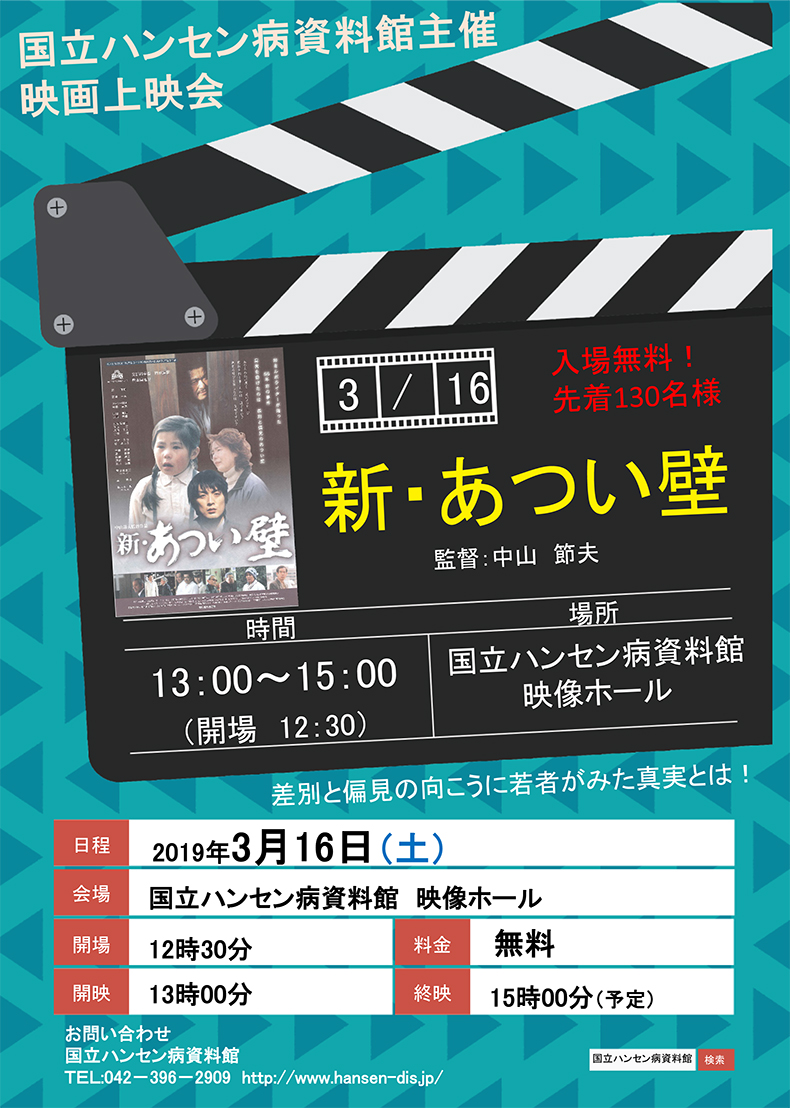
Takuya, a fledgling freelance writer, was told by Tomoda, a homeless man who happened to meet in an interview, about the murder that happened in Kumamoto 55 years ago.
Takuya is the editor-in-chief of an acquaintance, Fukushima, saying that he might be able to write an article by covering this. However, Fukushima doesn't even get in touch. Takuya, who can't give up, begins to investigate little by little, using Tomoda's story as a clue. It was a case in which a Leprosy patients Takuya decides to go to Kumamoto.
Resident Association National leprosy sanatorium Keikaen, is told in detail about the case and the trial by Masui and Sakashiwa, who are familiar with the situation at that time. The more I listened to it, the more I couldn't help but think of the innocence of Yukichi, a man who was sentenced to death as a criminal. In addition, Takuya is told by the pastor Sakagami, who was involved as Yukichi's last teacher, that he was "killed like a rag" as a testimony of a clerk who was directly involved in the trial at that time. What was there? And ... (Director Setsuo Nakayama "New Thick Wall")
Outline of the event
[Date and Time]
Saturday, March 16, 2019
[Opening]
13:00 (doors open at 12:30)
【place】
The National Hansen's Disease Museum 1st floor, Video Hall
[Screening]
13:00 to 15:00 (scheduled)
[Capacity]
First come, first served 130 people
Free admission / No prior registration required
Report on the screening of the film "New Hot Wall"
Following the great success of the film "Hot Wall," which was screened at The National Hansen's Disease Museum on November 3rd last year, we held a screening of the film "New Hot Wall" today, March 16th. After the screening, director Setsuo Nakayama came to say hello and we had the opportunity to hear more about the film.
We had a lot of customers come and the event was sold out. Thank you very much. We would like to introduce some of the opinions and comments we received from our customers.
- I thought that the difficulty of protecting human rights was carefully depicted in an era when we had to be aware of the territorial and blood ties. I was keenly aware of the horror of quiet and deep intensification of discrimination in "life." I was able to gain a new perspective on how to think about this issue. Thank you very much.
- What is discrimination, why is it, and why is it not gone? How to deal with the discrimination within me and how to eliminate it. I want to ask questions while I am alive. Discrimination is absolutely eliminated. Director Nakayama's story was valuable. Thank you very much. Thank you for today.
- Difficulty in reproducing reality. There must have been hundreds of times more "envy, sadness, sickness, and suffering" than the movie I just saw. I don't think the accumulation of small truths can be helped. Power / state power, this is a thick wall. This hasn't changed even now. The freshness disappeared from this museum as well. Thank you very much.
- Discrimination and prejudice cannot be considered without "knowing". Thank you for giving me an opportunity to think.
- Even if I saw and understood the exhibition, I was able to see it in such a video and touch the deeper part. It was good to hear the director's story. Thank you very much.
- It was a great movie. The woman who played Tokie Hidari said, "Discrimination and prejudice killed Mr. Yoshimura!" This is a work that I would like many people to see. Thank you very much.
- Please re-screen the "hot wall" and "new hot wall". Please create an opportunity for many people to see it. Thank you. Today I participated with a friend who saw "Hot Wall" together last year. I was also happy to meet the cheerful director Nakayama. Thank you very much. I will do what I can do from my point of view.
- Please show a lot of movies about Hansen's Disease I want many people to know the hearts of those who suffer from discrimination.
Next week, on Sunday, March 24, the 25th anniversary of the opening Hansen's Disease Museum will be followed by a video screening of "Osamu Sagawa and the Hansen's Disease Museum" directed by Hayao Miyazaki We will hold the trajectory of "Nokai". We look forward to your participation.
The National Hansen's Disease Museum
 Opening remarks (Moderator: Curator Kim) |
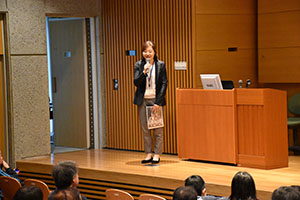 Opening remarks (Moderator: Curator Kim) |
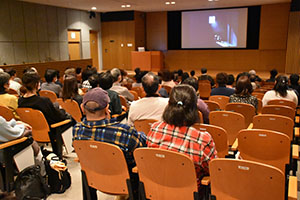 Movie "New Hot Wall" Scenes from the screening |
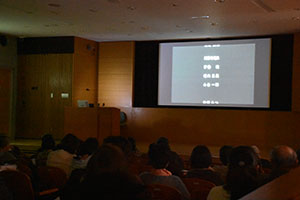 Movie "New Hot Wall" Scenes from the screening |
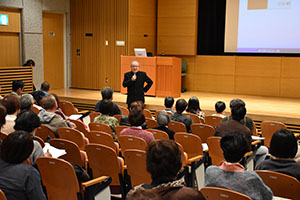 Greetings from Director Setsuo Nakayama |
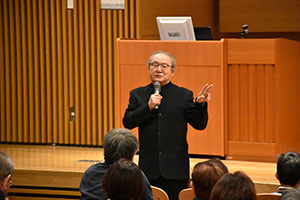 Greetings from Director Setsuo Nakayama |
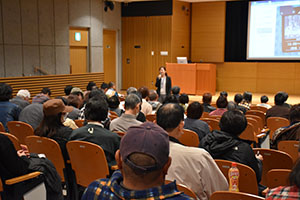 Closing remarks (Curator Kim) |
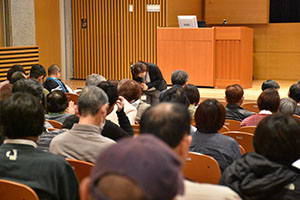 Closing remarks (Curator Kim) |
